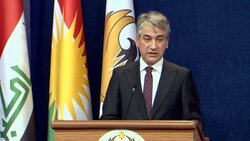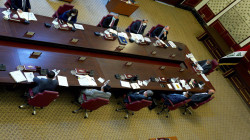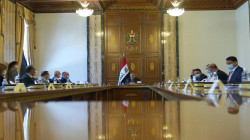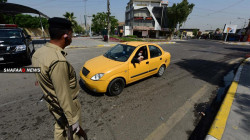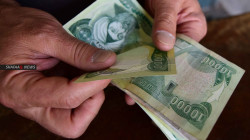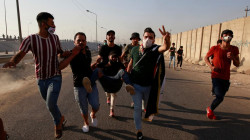What are the prospects for small political blocs in shaping new local governments?
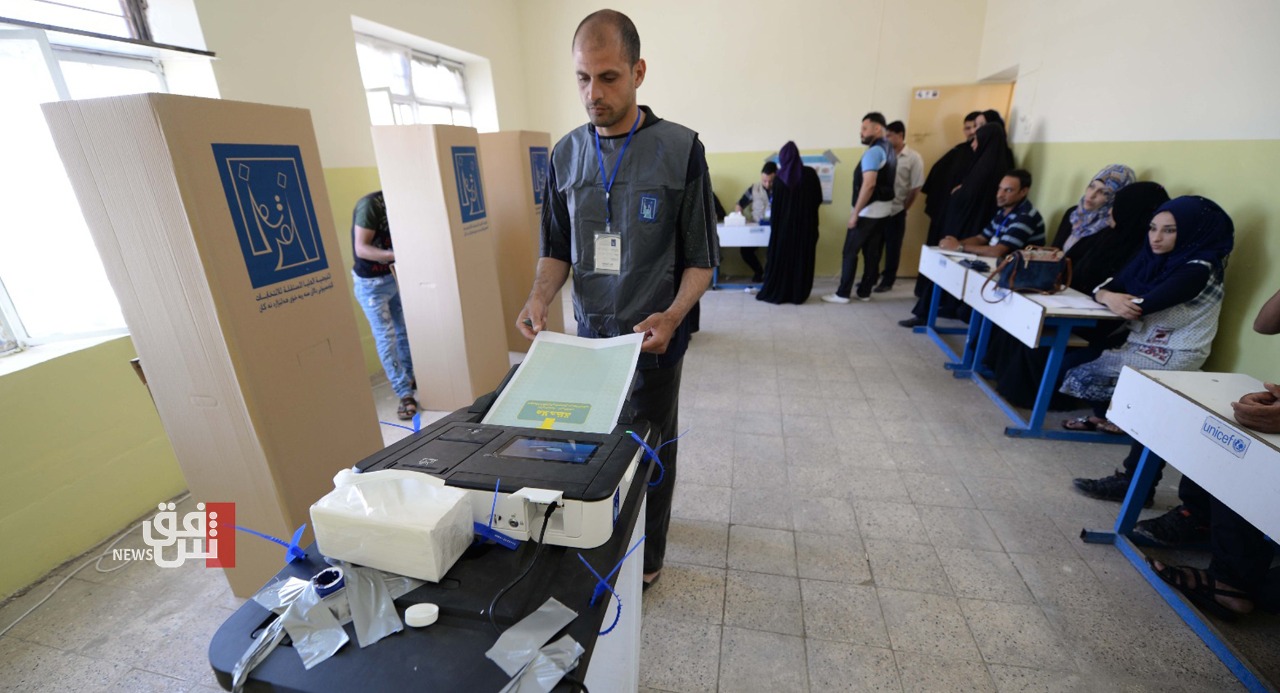
Shafaq News / The recent provincial council elections witnessed the emergence of several parties that dominated the results in their respective governorates as an alternative choice to the traditional parties in the political arena.
While some observers view these parties as part of the "traditional parties" and unrelated to the "Tishreen (October Revolution) parties" that quickly disappeared due to poor organization, others assert that these parties have "no chances" amidst the agreement of major blocs, similar to what occurred in the recent parliamentary elections, under the influence of the Sadrist Movement.
Coalitions like "Tasmeem" in Basra, "Wasit Ajmal" in Wasit, and "Ibdaa Karbala" secured the top positions in their governorates in terms of the number of seats in the provincial councils. Following them were coalitions such as the "Nabni" alliance led by Hadi al-Amiri and the "State of Law Coalition" led by Nouri al-Maliki, competing for high-ranking positions in those governorates.
Rapid rise and decline
Political analyst Qasim Al-Rubaie asserts that the events of the October 2019 protests represented the birth of an idea centered around providing a political alternative to the traditional parties that have held power since 2003 until 2019. He highlighted the broad popular trend that rallied around this alternative concept.
Al-Rubaie stated, "Following the 2021 elections, it became apparent that there was a widespread popular shift towards alternative political parties. However, they soon fell back as they could not compete with the traditional parties that returned to prominence, thus shaping the future local governments."
According to Al-Rubaie, the reasons behind the decline of the Tishreen parties, which achieved significant numbers in the 2021 elections, are manifold. "They can primarily be attributed to two factors; poor organization based on clear institutional formulations. Most of these parties were formations that represented a reaction to existing traditional parties, adopting similar directions, altering the voters' compass and leading them back to the old ways.
"The second reason lies in the fragmentation and disintegration of these new parties, which became numerous, while people in the country hoped for a successful alternative that would fulfill the aspirations of the masses. However, after diversifying their movements, these parties became conflicting among themselves and sometimes antagonistic among their leadership, thus developing personal ambitions."
He further added, "Some of these new movements failed due to their involvement in corruption issues. Some were labeled as extortionists while others were targeted. A significant portion of those initially seen as agents of change joined the corridors of traditional parties, which was considered a major setback for members of the community aspiring for change."
He pointed out that "All these reasons led to the collapse of emerging parties, reluctance from the community to support them, and the acquisition of sporadic seats here and there in the recent local elections, contrary to what was witnessed in the 2021 parliamentary elections."
No parties
Political analyst Salah Al-Mousawi argued, "We do not have any political parties, neither traditional nor new. Instead, we have religious ideologies operating along collective lines. These entities have become utility gates. Everyone follows this old and new trajectory, as seen in the recent local elections through the use of social welfare cards to secure votes."
Al-Mousawi further explained to Shafaq News Agency, "What emerged from the October protests was not parties because a party requires leaders, foundations, significant work, and solid bases. What appeared was more of a reaction or a trend, carrying the same essence as the traditional parties, if not less."
He clarified that "What occurred in the recent local council elections, where some conservative parties conquered others, demonstrates that these parties are not dominant and cannot be defeated. They wield limited and narrow authorities similar to those they defeated."
Al-Mousawi highlighted that "The situation in Thi Qar is different from others. It is an exceptional city where everyone has a foothold and strives to control it. Due to the pressures it faced, it has become a city of expression for all dissenters. This is unlike other cities such as Basra, Wasit, Maysan, Karbala, and Najaf. These cities are international, border-oriented, and economically developed. Hence, everyone pays attention to these cities, unlike Thi Qar, which has turned into a stage for settling scores among political leaders themselves."
The game of power
Political analyst Atheer Al-Shara' views elections as a known game of power politics, emphasizing the necessity for consensus and quota allocation in this domain. "The winner must engage in consensus-building, forming larger alliances to manage the process," he stated to Shafaq News Agency.
Al-Shara' expressed skepticism, stating, "We do not believe that those who secured first place in Basra, Wasit, or Karbala are capable of facing opposing parties or having the opportunity to select the next governors within their goveenorates." He anticipated major blocs like the State of Law and Nabni to form alliances similar to previous electoral cycles.
He highlighted a scenario where newly emerging parties might participate in the political decision-making process within their regions, albeit under the agendas of major parties. "If these newcomers oppose the major blocs, their chances of engaging in political decision-making might be limited," he added.
Al-Shara' stressed that recent agreements between Coordination Framework blocs to expedite the formation of local governments might diminish the chances of newly emerging parties. "The Framework blocs have agreed that the position of governor will likely remain within their sphere. We might witness similar scenarios to the last parliamentary elections, where some blocs incompatible with the visions of major blocs were pushed out of the political landscape in certain governorates."
Dismantling strategy
According to high-ranking sources, there is intense movement led by the Asa'ib Ahl al-Haq bloc, a part of the Nabni alliance, aimed at dismantling the Tasmim alliance before the upcoming inaugural session of the Basra Provincial Council.
Simultaneously, sources informed Shafaq News Agency that the Asa'ib Ahl al-Haq bloc is making significant efforts to oust Asaad al-Aidani to secure the governorship position for their prominent member, Uday Awad. It is affirmed that "Al-Aidani might be surprised by the withdrawal of Amer Al-Fayez, a prominent leader in the Tasmeem alliance, who is inclined to join the Nabni alliance. Al-Fayez holds nearly half of Tasmeem's seats obtained in the recent local elections."
Calming efforts in Thi Qar
Regarding Thi Qar governorate, sources indicate that "the political movement led by the Nabni alliance aims to retain the current governor, Mohammed Hadi, affiliated with the Sadrist Movement, in order to support him for the sake of local street calming in the upcoming phase."
These sources confirm that "the Nabni alliance has proposed several options if an agreement to retain the current governor is not reached. These include nominating Lieutenant General Saad al-Harbiya, the commander of the Samarra Operations, for the position. Alternatively, they might seek the assistance of the former governor, Aziz Kadhim Alwan, affiliated with the National Wisdom Movement (Al-Hikma), or the former council chairman, Yahya Al-Mashrafawi, who belongs to the Sanad Bloc led by the Minister of Labor, Ahmed Al-Asadi."
The sources further explain that "the final decision remains in the hands of the central leadership in Baghdad, which is engaged in intense negotiations currently and will be finalized after the announcement of the final election results by the Electoral Commission (IHEC)."
Contrary alliances
Israa Al-Nasrawi, a member of the Ibdaa Karbala Bloc, believes that "forming an alliance between the winning blocs in the provincial councils of Basra, Karbala, and Wasit is not feasible." She emphasized that "her bloc's efforts are geared towards gaining control over decision-making within the council."
Al-Nasrawi told Shafaq News Agency that "talk about forming an alliance between the winning blocs in Basra, Karbala, and Wasit contradicts the realities of alliances among the Coordinating Framework Alliance, State of Law Coalition, and other political forces." She clarified that "the Ibdaa Bloc in Karbala is awaiting the official announcement of the voting results in the coming days."
Furthermore, she added that "the Ibdaa Bloc in Karbala is not considering entering into an alliance at present, either within or outside the governorate."
Unity prevails
The inaugural meeting of the winners of the Wasit Provincial Council seats, representing the "Wasit Ajmal" bloc, emphasized the importance of collective cooperation with all the other successful candidates who gained the trust of the people of Wasit from different electoral lists. Their goal is to prioritize the interests of Wasit and its residents in every step taken towards stability and development.
In a statement, the bloc highlighted that Wasit Ajmal is expediting its efforts towards finalizing negotiations after the conclusive approval of the election results. They aim to establish a local service-oriented government that involves everyone, regardless of any political calculations or affiliations.
